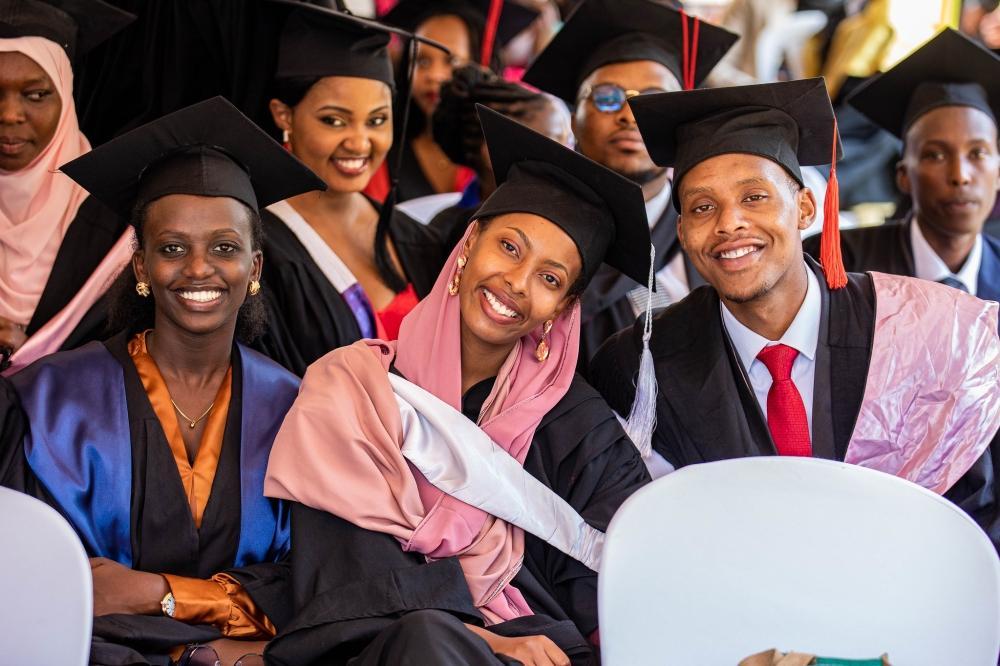Africa-Press – Rwanda. Three Prime Minister’s Orders, all published on June 3 in the Official Gazette, establish the special employment statute for staff in public higher learning institutions and define the governance structures of Rwanda Polytechnic and University of Rwanda.
Here, The New Times looks at key things to know about the reforms.
1. Autonomy in recruiting
Public institutions of higher learning have been granted autonomy in managing their human resources. Unlike the previous system that required institutions to follow the general statute for public servants, the new framework allows higher learning institutions to independently recruit staff.
This shift will help attract qualified professionals more quickly and address long-standing staffing challenges affecting the two public institutions, according to their leaders.
2. Criteria for recruitment
Recruitment is done based on staffing needs and the available budget.
The recruitment will be carried out through competition, nomination, direct recruitment, and placement.
3.Ranks of academic staff
The ranks of academic staff for general education in an institution of higher learning are: Tutorial Assistant, Assistant Lecturer, Lecturer, Senior Lecturer, Associate Professor, and Professor.
Ranks of academic staff for practical teaching in an institution of higher learning are: Assistant Instructor, Instructor, Senior Instructor, Chief Instructor, Associate Professor of Practice, and Professor of Practice.
Ranks of research staff of an institution of higher learning are: Research Assistant, Assistant Researcher, Researcher, Senior Researcher, Associate Research Professor, and Research Professor.
Academic and research support staff who are not in the category of administrative staff in institutions of higher learning are: Laboratory Technician, Librarian, and Workshop Technician.
Ranks of laboratory technicians are: Assistant Laboratory Technician, Laboratory Technician, and Senior Laboratory Technician.
Ranks of librarians are: Assistant Librarian, Librarian, and Senior Librarian.
Ranks of workshop attendants are: Assistant Workshop Technician, Workshop Technician, and Senior Workshop Technician.
4. Change of job position, workplace and category of staff
The Board of Governors will establish the policy of an institution of higher learning that determines the modalities for a staff member to move from one job position to another, be transferred from one workplace to another, or from one of the categories of staff of an institution of higher learning to another.
5. Extending retirement beyond the age
Article 29 of the Prime Minister’s Order establishing the special statute governing employees of public institutions of higher learning states that an academic, practical teaching, or researcher staff member may be allowed, in the interest of the service and upon request, to extend retirement beyond the age provided for by the law establishing the general statute governing public servants.
6. Promotion of academic, practical teaching, research and support staff
An academic, practical teaching, research, or support staff member is entitled to vertical promotion if he or she fulfils the requirements provided by the promotion policy of staff in institutions of higher learning.
When he or she has reached the highest rank of vertical promotion, he or she is entitled to horizontal promotion.
7. Sabbatical leave
Sabbatical leave is granted to an academic, practical teaching, or researcher staff member who has reached the rank of Professor, Professor of Practice, or Research Professor upon approval by the Minister in charge of education and continues to enjoy the same rights as any other in-service employee.
Sabbatical leave is a planned, extended break from work that is typically granted to employees—especially in academic or research institutions—to allow them time for professional development, research, writing, study, or personal renewal.
The staff member uses his or her sabbatical leave to conduct research or other activities of public interest upon request by a competent organ.
The Board of Governors determines the requirements for an academic, practical teaching, or researcher staff member who has reached the rank of Professor, Professor of Practice, or Research Professor to apply for sabbatical leave and his or her fringe benefits.
8. Absence due to other responsibilities
An academic, practical teaching, or researcher staff member of an institution of higher learning who is appointed by the Government, elected for other responsibilities, or seconded to another institution, is considered to have suspended his or her full-time teaching or research duties.
However, he or she may continue to teach or conduct research in the higher learning institution on a part-time basis.
The Vice-Chancellor of an institution of higher learning may reintegrate an academic, practical teaching, or researcher staff member of an institution of higher learning if he or she leaves the position to which he or she was appointed, elected for, or seconded, upon request.
9. Other management organs of Rwanda Polytechnic
The Prime Minister’s Order also establishes other management organs of Rwanda Polytechnic and determines their organisation and responsibilities.
Other management organs of the RP are the College Management Committee, College Academic Council, RP-affiliated Teaching and Research Institute Academic Council, School Council or Centre of Excellence Council or both, and Department Council.
10. Other management organs of University of Rwanda
The Prime Minister’s Order relating to organs of University of Rwanda establishes other management organs of the University of Rwanda and determines their organisation and responsibilities.
Other management organs of UR are the College Management Committee, Campus Management Committee—when more than one college is located on the same campus and has its head office on that campus—College Academic Council, UR-affiliated Teaching and Research Institute Academic Council, School Council or Research Centre Council, and Department Council.
Source: The New Times
For More News And Analysis About Rwanda Follow Africa-Press






